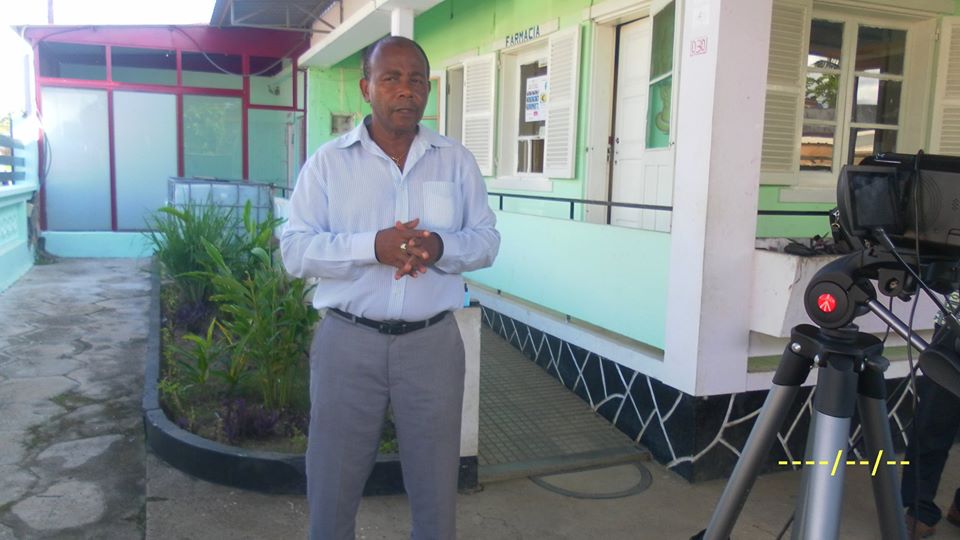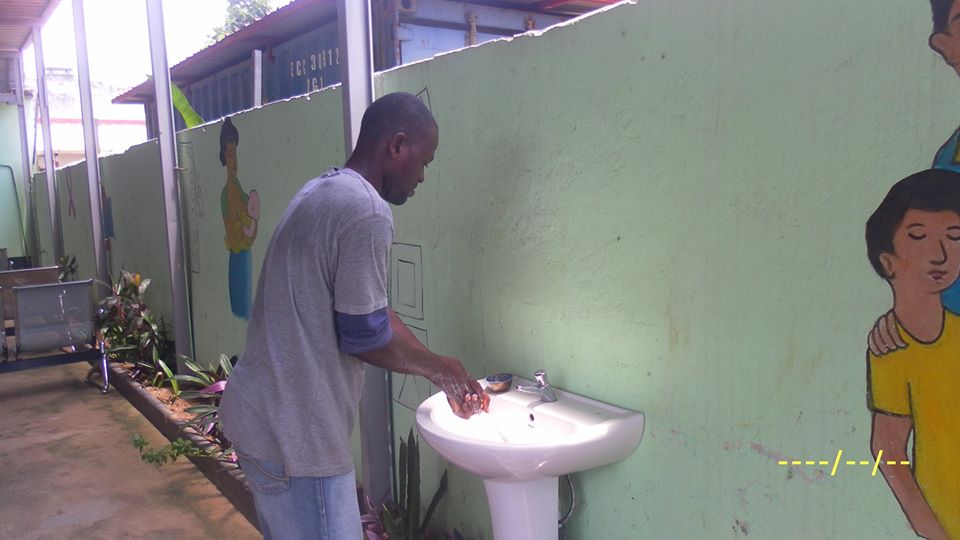
How has your country been affected by the coronavirus?
Sao Tome and Principe closed its borders to non-residents and suspended all international flights to prevent the spread of the novel coronavirus after the country reported its first confirmed four cases of COVID-19 on 6th April. The government announced various restrictions measures, including mandatory 14 days quarantine for returning nationals and foreign residents. Although the figures keep changing, as of 1st May, there are 14 confirmed cases, four recoveries and thankfully no reported deaths from the deadly virus.
What services is ASPF able to provide during this period?
Our facility, Clinica Saúde e Paz, continues to offer all SRH services including family planning, comprehensive abortion care, HIV/AIDS and STI treatment, pre- and post natal and gynocological consultations with our sessional doctors. Our general practice, laboratory and radiology services are also operational. Our peer educators are continuing their awareness-raising activities focusing on preventing the spread of COVID-19 and gender-based violence.
Have you had to adapt the way your MA delivers Sexual Reproductive Health (SRH) services?
Yes. ASPF has a contingency plan for COVID-19 and we have put in place several preventative measures including social distancing by ensuring a distance of 1.5 meters between clients in the waiting area; a designated area for suspected cases; hand washing for everyone entering the clinic; and all our staff and service providers must wear masks, gloves and gowns. We have also initiated a referral system with the national hospital for suspected cases, as well as with respect to collection of medical waste.
Have you had to close a clinic or suspend some activities? If yes, please explain.
Following the closure of all schools by the government, we were forced to suspend our youth centre services that provide SRH services to students in three schools (CIJ from Liceu Nacional; CIJ from Preparatory School Patrício Lumumba; and CIJ from Secondary School in the City of Trindade).
Is your MA part of a COVID-19 response team? How are you working with partners during this period to ensure that SRHR services are provided (for example, Ministry of Health, police/gender secretaries in police stations, local leaders etc.)
We were among the NGOs that were trained to contribute to the national response to COVID-19 by the Ministry of Health. And as a member of the Ministry of Health’s multisectoral coordination committee on COVID-19, ASPF has been at the forefront of advocating for SRH to be categorized as part of essential health services.
Have your MA staff participated in any training on COVID-19?
Yes. ASPF participated in the training for case management and response to COVID-19 organized by the Ministry of Health and the World Health Organization (WHO). In addition, a similar training will be held for 115 of our community health workers under the Global Fund to Fight AIDS, Tuberculosis and Malaria.
Have you received donations from partners/supporters or have you made any donations?
We have been able to procure additional gloves, face masks and gowns for our service providers under the SAAF project and we have been able to continue providing services with the release of the second tranche of the IPPF grant. We have also donated some gloves and masks to our partners including the São Tomé Central Prison and the Água Grande Health Police Station.
What concerns do you have for women and girls during this time?
We have noticed an increase of the number of cases of gender-based violence and rape of minors who present in our clinic. We are also very worried about our ability to meet our clients’ needs, given that two of our nurses are currently on sick leave. Our medical, clinical and administrative staff are also prioritizing the needs of pregnant women as well as elderly women.
How are your volunteers helping to respond to COVID-19?
Our volunteers are contributing in various ways depending on their experiences and areas of expertise. While some are raising awareness on COVID-19 in their communities, others have been interviewed in national radio and television and television programs.
